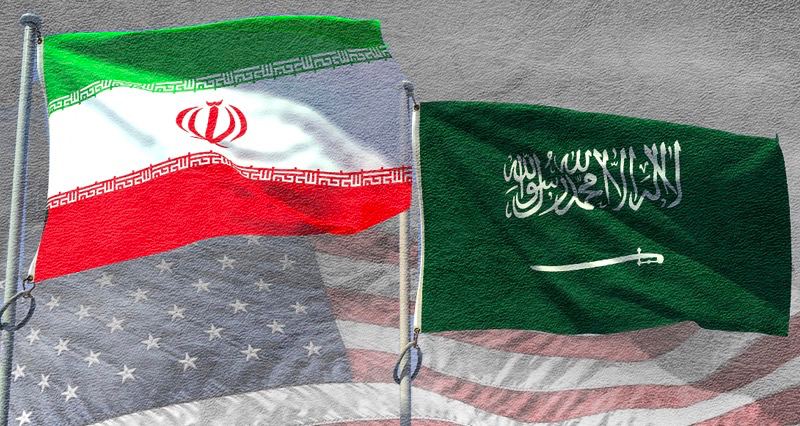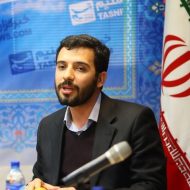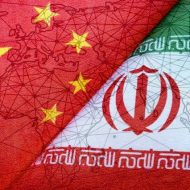Following Iran’s missile strike on Israel’s military and security zones, the regime was left with no choice but to remain silent in the face of Iran, paving the way for an event on which many political experts agreed upon, namely the redefinition of Middle Eastern political structures.
By acquiescing to Iran’s harsh response to the regime’s aggression against its diplomatic sites in Syria, Israel demonstrated that the hypothesis of the regime’s existential and strategic weakness, which Iran has emphasized for years, is as valid as it gets.
Iran has been reiterating for more than two decades that Israel has no strategic capability to ward off danger without US assistance. Tehran asserted that if Middle Eastern countries do not provide an opportunity for this regime to ride the wave of regional differences, Tel Aviv will have no choice but to submit to the will of the original peoples of the Middle East.
Given Israel’s strategic vulnerabilities, Iran underscored that Tehran has a high actual capacity to defend its borders and interests, affirming that this capability will only be wielded defensively and not against any regional nations except Israel, which is currently engaged in hostilities and targeting Iran’s interests.
The Islamic Republic of Iran has demonstrated through its “True Promise” operation that it is realistic in both its assertions of strategic authority and Israel’s strategic weakness. As such, it is reasonable to anticipate that the mechanisms of strategic and practical politics in the Middle East will soon shift to conform to these realities.
While the Middle East’s situation was thought to be highly complicated in the first week following Iran’s response to Israeli terrorist attacks, as time has passed on, the region’s level of tension has noticeably decreased, and the major actors in Middle East politics have begun to show signs of serious political movements. The most notable instance of which is evident in the important diplomatic visits between Riyadh and Tehran.
A fresh chapter in relations, marking anniversary of restored ties
Thirteen months ago, after seven years of tense relations between Tehran and Riyadh, the foreign ministers of Iran and Saudi Arabia met in Beijing spurred by China’s proactive stance in the Middle East. While signing agreements, they began a new phase of relations, signaling a watershed moment in their diplomatic trajectory.
Although Israel’s invasion of the Gaza Strip and the genocide of Muslims in the enclave slowed down this new round of relations, Tehran and Riyadh acted prudently after the initial wave of tensions subsided.
In fact, the Gaza crises demonstrated yet again that both the US and Europe lack the capacity to intervene effectively in regional matters. This is due to their inability to confront the Zionist regime’s outrageous and anti-human behavior. Also, they lack of long-term influence in the Middle East and fear the potential costs of direct involvement in Middle Eastern issues for political and military reasons.
Regional players, such as Iran, Saudi Arabia, and Türkiye, can, by maintaining rational approaches and collaborating, increase their strategic leverage in regional developments. They have the potential to alter imposed relations by global powers through regional diplomacy.
In this context, we observed fresh developments in Iran-Saudi relations last week.
Mutual visits
During the Islamic Development Bank Summit in Riyadh, the Iranian Minister of Economy and the Governor of the Central Bank of Iran engaged in discussions with the Saudi Minister of Economy. Following the meeting, a post on X (formerly twitter) by Seyyed Ehsan Khandouzi, the Iranian Minister of Economy, suggested that the encounter was constructive.
“We had a very constructive conversation with my Saudi counterpart in Saudi Arabia. Faisal Ibrahim agreed to all five of Iran’s proposals and emphasized the development of a roadmap for public-private economic cooperation and its expedited implementation,” Khandouzi wrote in his post announcing his meeting with his Saudi counterpart.
Immediately after the visit of two senior Iranian economic officials, the Minister of Economy and the Governor of the Central Bank of Iran, to Riyadh, Iran’s Deputy Foreign Minister for Economic Diplomacy also arrived. Mehdi Safari travelled to Riyadh to attend a special session of the World Economic Forum titled “International Cooperation, Development, and Energy”. Saudi Arabia has convened the forum with the participation of heads of state and economic policymakers from around the world.
Simultaneously with these visits by Iranian economic officials to Saudi Arabia, a delegation from the Saudi Export Development Authority traveled to Iran to participate in the “Tehran Expo,” and Nasser Kanaani, the spokesman for the Iranian Foreign Ministry, interpreted the presence of the Saudi economic delegation at the 2024 Tehran Expo as an indication of the development of trade and economic relations between the two countries.
Along with these economic movements, Saudi Arabia has appointed a new Consul in Mashhad. Following the reopening of the Saudi embassy in Tehran, the appointment of Mohammad Nawar Al-Otaibi as Saudi Consul General in Mashhad is regarded as one of the most significant steps toward normalizing relations between the two countries. Additionally, officials from both countries have announced negotiations to resume flights between Saudi Arabia and Iran. Also, Saudi Arabia’s Deputy Foreign Minister, Walid Al-Khurayji, will visit Tehran soon.
Perhaps the most symbolic step toward normalizing and activating relations between Tehran and Riyadh was the arrival of the first Iranian pilgrims to Saudi Arabia’s holy Islamic sites after a nine-year hiatus. These people were welcomed by the Iranian ambassador to Saudi Arabia and officials from the Saudi Hajj and Umrah Organization.
America’s attempt to disrupt regional convergence
The US’s inability to control one of the most notorious Zionist politicians has become an obvious issue. The retreat of the United States and Europe from all human and political ideals in the face of the genocide in Gaza has become an obvious and undeniable matter.
Regional countries have recently taken steps to strengthen regional diplomacy. However, in response to these positive developments, the US has predictably resorted to attempting to sow instability and discord, as is often the case. Despite an increase in diplomatic ties between Iran and Saudi Arabia, as evidenced by the favorable responses to these developments in the Iranian financial and currency markets, the US Secretary of State Antony Blinken paradoxically referred to Iran as the biggest source of instability in the region during his visit to Riyadh and meetings with Saudi officials. At the very same time when Iranian officials were also present in Saudi Arabia!
It is not unlikely that, if the positive trend of improving relations and cooperation between Iran and Saudi Arabia continues, Israel and the United States will seek to expand regional disputes. They will try to create conflicts among nations and, ultimately, prevent countries such as Iran, Saudi Arabia, and Türkiye from moving toward a constructive regional diplomatic mechanism.









Leave a Reply